South Bend at-large candidates talk crime, equity in economic development, other topics
The Tribune is partnering with the League of Women Voters of the South Bend Area and the American Democracy Project of Indiana University South Bend to publish candidates' answers to questions on the issues. The League, with local help from the ADP, operates Vote411.org, a website with information about the candidates and their positions on key issues.
The Tribune has agreed to run candidate answers unedited, meaning any spelling, typographical or grammatical errors are the candidates' own. The Tribune is publishing only some of the questions from a selection of contested races. Additional questions and answers, including from candidates who have no opponent, are available at Vote411.org.
Early voting for Indiana's Nov. 7 municipal election has already begun. To vote early, either fill out an application for a mail ballot at https://indianavoters.in.gov/MVPHome/PrintDocuments or vote in person. In St. Joseph County, there are two early-voting locations: the County-City Building, 227 W. Jefferson Blvd. in South Bend; or the Mishawaka County Services Building, 219 Lincoln Way W. in Mishawaka. Voters must present a valid government-issued photo ID.
Three of the nine members are South Bend's Common Council are elected at large, meaning they represent the whole city rather than one district. Voters can pick up to three candidates to support. Two Republican challengers face two Democratic incumbents: Karen White and Rachel Tomas Morgan, and a former council member, Oliver Davis.
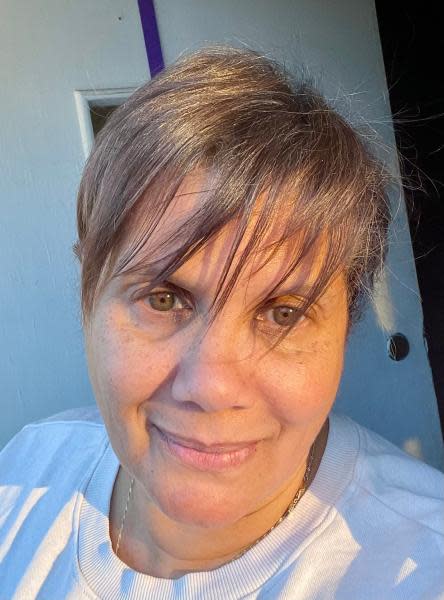
Heidi-Sunje Bell
The candidate has not responded to the questionnaire.
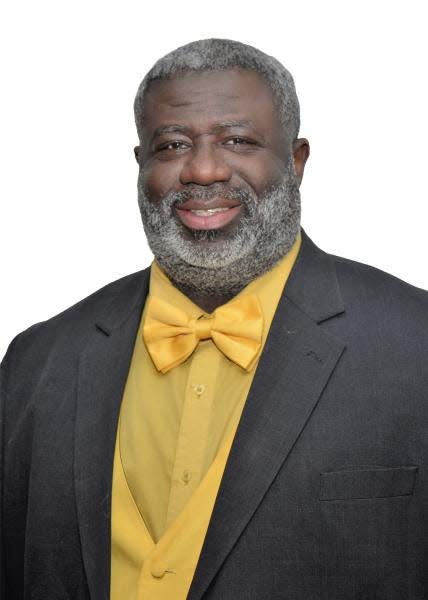
Oliver Davis
Occupation: School social worker at South Bend schools and Social work and gerontology faculty at Saint Mary's College
Email: oliverdavis4citycouncilatlarge@gmail.com
Campaign phone: 574-876-6938
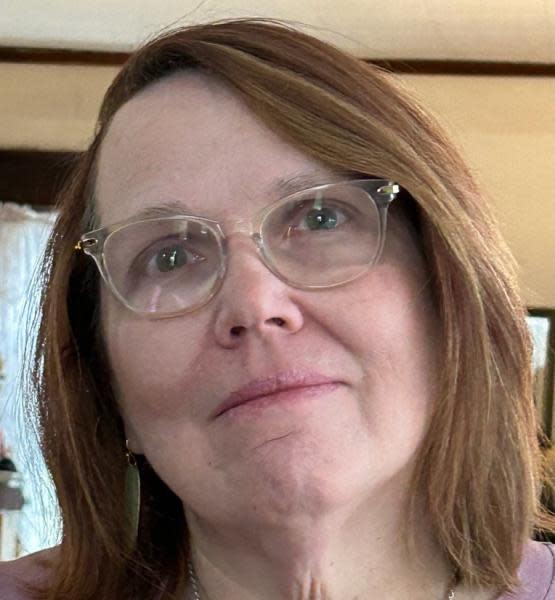
Rhonda Richards
Email: Vote4RhondaRichards@gmail.com
Campaign phone: 574-210-1847
Facebook: facebook.com/Vote4RhondaRichards
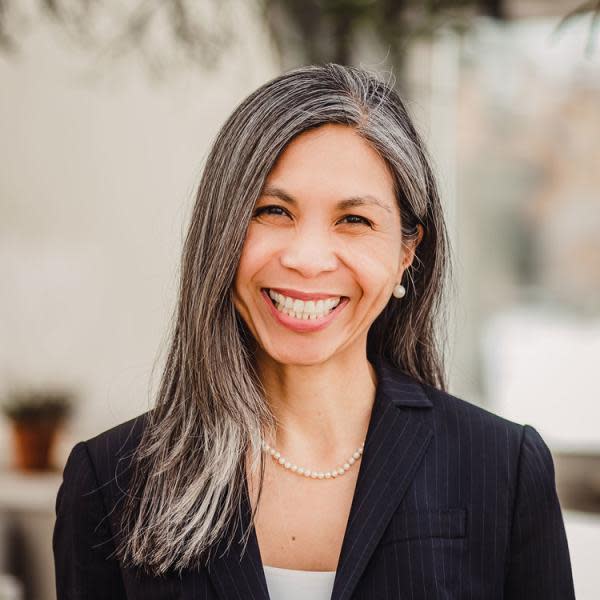
Rachel Tomas Morgan
Occupation: South Bend Common Council member; Former higher education educator & administrator
Email: info@rachelforcouncil.com
Website: rachelforcouncil.com
Campaign phone: 574-250-3770
Facebook: facebook.com/rachelforcouncil
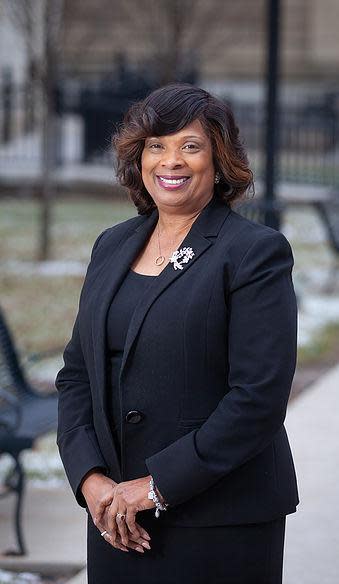
Karen White
Occupation: South Bend Common Council member; Retired Associate Vice Chancellor at IUSB
Email: kwhite4211@gmail.com
Website: reelectkarenwhite.com
Campaign phone: 574-229-3100
Facebook: facebook.com/councilwomankarenwhite
What is the most important challenge facing South Bend and how will you address it?
Bell: The candidate has not responded to the questionnaire.
Davis: South Bend’s biggest challenge is ensuring that all districts within the city are equitably funded annually. Historically in South Bend and throughout America, prosperity can be tied to zip codes. We must change that here and ensure high-quality city services blanket each part of our city. Whether infrastructure, health, safety, or any other pressing issue, we must actively and continuously assess our work so that all are able to prosper. That will beacon to others the strengths of our city in a manner which invites others to move here to live, to work, and to enjoy South Bend and all that it provides to families and businesses. Our goal must remain all, no matter your station, will be proud to say that South Bend is Home and all, no matter your station, will be truly welcome.
Richards: One of the most important challenges facing South Bend today is the fact that as a society we don’t see or acknowledge each other. We are so focused on ourselves and the things facing us or “our community” that it limits what we hear, accept or expect when it doesn’t appear to immediately correct our problem. We are a community, our elected officials need to look at South Bend as a whole and work equally for what’s right for all, not just what’s best for one group or another. Each person has the same worth and value. Every community has the same worth and value. The hard part is looking for the best for everyone not just the “quick fix” answer that doesn’t result in the expected long-term goals for that group or South Bend.
Tomas Morgan: Public safety is the top concern I hear from residents. This can mean feeling free from any potential harm, and Council plays a key role in decisions affecting quality of life. I believe every person should feel safe, secure, that they belong. To that end, I support adopting best practices in policing; infrastructure improvements in streets, sidewalks, and lighting; expansion of quality, affordable housing; efforts to house the most vulnerable; thriving businesses and quality jobs; and revitalizing public spaces to foster a sense of pride and place. We need to ensure our youth have outlets for positive activities, that parents have options for quality childcare, that all can use streets without fear of speeding cars or distracted drivers, and that we address the harms climate change and food insecurity bring.
White: The most important challenge facing the City of South Bend is gun violence. The alleviation of crime and keeping our citizens safe remain a top priority. 2022 had LESS incidents of violence but more people shot compared to 2021. 2021 had less people shot but more incidences of shootings We must address gun violence from a holistic perspective, and as a public health safety issue, and treat it as such. Prevention and Intervention strategies must address the root causes of violence and create policies/programs to treat them. The root causes are many and varied. There is a dire need to have a comprehensive community safety plan with implementation to occur after having all stakeholders at the table. We need to combine all our efforts into a holistic plan.
What is the best way to curb crime? Should we increase police staffing, technology and budgets? Or should we redirect resources away from policing? Explain your reasoning.
Bell: The candidate has not responded to the questionnaire.
Davis: Addressing crime in South Bend is not just the responsibility of our local police and public safety officials. While we need to continually support our local public safety officials, and as an At-Large Councilmember, I will include various local partners such as our schools, churches, businesses, civic groups, and mental health professionals to promote non-violence, shared safety, and improved health throughout our populations no matter their age, gender, geography, or background. Also, I will promote throughout our city the beautification of our neighborhoods and parks and advocate for environmental justice funding, as public safety, in our residential and in our brownfield areas which may have historically had hazardous substances, pollutants, or contaminants. All our residents deserve spaces to flourish and to find a better path.
Richards: We as a society have already redirected money away from important areas causing our Police to have to deal with issues that are not just law and order. They are not fully equipped or trained to care for the numerous other social issues in our city. We have systematically disassembled or greatly decreased the ratio of help for these issues. It has fallen on our police to step in, out of necessity, causing them to have the stress of functioning in areas outside their expertise. Redirecting resources away from policing will just exasperate this already overwhelming problem. We do need to continue training, staffing and adding technological advantages to our police force, but we also need to attract, develop, and increase the private agencies that have the expertise in these other societal issues.
Tomas Morgan: Reducing crime demands a data-informed, multi-disciplinary response, with solutions that strengthen both community and enforcement-based approaches. I supported providing resources for our police and firefighters in the form of pay increases and residency incentives, along with resources to effectively recruit. For the first time in many years, SBPD will soon be fully staffed with the most diverse force ever. I also supported resources for enhanced, cutting-edge technology and the creation of the violent crimes unit and the Real Time Crime Center as critical to solving crimes and, in turn, helping to deter crime. Both personnel and technology investments are critical to reducing crime and enhancing public safety in our community. In addition, I support investments that address the social and environmental conditions that foster crime.
White: There is not necessary a best way to curb crime. They are best practices. One of them is community policing. Staff, resources, citizens’ involvement, cultural diversity training are valuable. Community policing is important to building and creating community trust. Officers become part of the neighborhoods they serve. They are able to get a better sense of residents’ needs and help residents to develop greater trust in the police. Our residents also have an opportunity to see them differently. Redirecting resources away from policing will not curb crime. From a practical standpoint, the engagement must begin at the elementary school level. We must work closely with our students, neighborhood associations, religious institutions, and all schools beginning at the elementary level.
Many recognize a disparity in economic growth in different parts of the city. What steps will you take to ensure economic growth and development is more widely distributed across the entire community?
Bell: The candidate has not responded to the questionnaire.
Davis: Economic growth hinges on our entire city and all its residents being lifted up. Our past efforts to promote our downtown area should now be expanded to include all of our entry areas. With the closing of Wal-Mart on the Northside of our city (Portage Avenue, Cleveland Road, and Bendix Drive), we need to address our financial plan to reinvest in that area. On our Southside (Ireland Road, Michigan Street, and Main Street), on the Westside (Sample Street, Western Avenue and Lincolnway West), and on our Eastside (Mishawaka Avenue, Miami Street, and Lincolnway East) we need to promote targeted financial growth. Thus, as we lift up our city on all four corners and in our downtown area of our City of South Bend, we can ensure that our overall economic growth is maximized to benefit all of us.
Richards: There are several areas throughout our city that need our focus and attention. Some areas are the west side, the area south of Ivy Tech, and some of our subsidized housing. Each area has potential, but each area is different and the goals for growth will need to differ also. Some concerns can be addressed through zoning and code enforcement. Others need the help of development and holding the proper stakeholders accountable, while not letting the punishment and hardship fall on the possible victims of others’ negative actions. Code enforcement, traffic flow, street accessibility all play a part. We need to look at and deal with all possible courses of action.
Tomas Morgan: In 2019, I ran on wanting to extend community and economic investments to all corners of the city. Over the past few years, South Bend has seen unprecedented development across the city and especially in parts that have not seen investment in a long time. These include the expansion of public WiFi; of affordable, workforce, and market-rate housing options in vacant buildings and on vacant land; and of pre-K opportunities in areas of greater need. We are building a new MLK Dream Center to create opportunities for youth in westside neighborhoods and to activate the Linden Avenue business corridor. Small businesses across the city can get a facelift with the new “Vibrant Places” grants. We are keeping, expanding, and attracting business and industry to South Bend. I am committed to building on this progress.
White: Economic growth in all of our neighborhoods is vital for South Bend to thrive. Recent population data from the U.S. Census Bureau showed that South Bend grew by 2,285 people over the last ten years. “This has been the largest increase in the city’s population since the 1960 Census.” We are no longer a dying city, but instead a vibrant, still blossoming one. Economic development must be comprehensive and inclusive. We must proactively and intentionally address long-standing issues related to inequality and inequity. We must articulate and address residents’ needs so that real change occurs, and the residents trust that development will happen. We are moving in the right direction by creating oppo. attracting small business and industries to our city. Why? Jobs are created, and revenue remains in our community.
This article originally appeared on South Bend Tribune: Gun violence, tax abatements debated by South Bend council candidates
